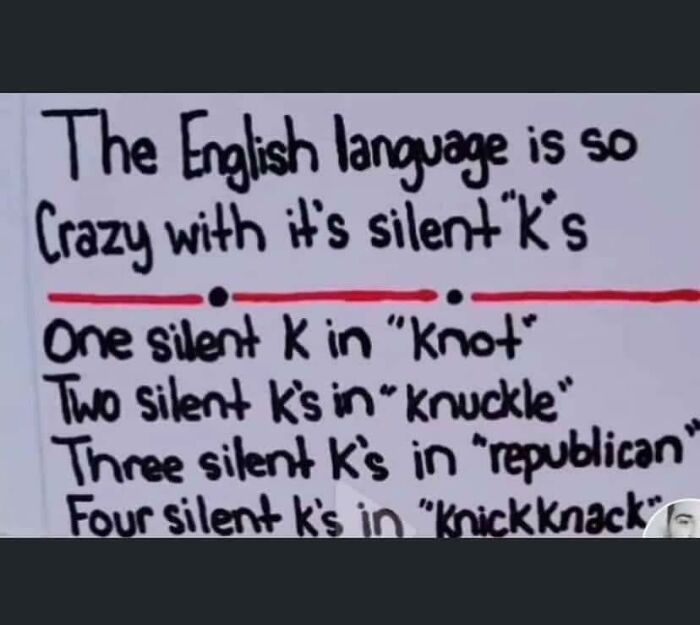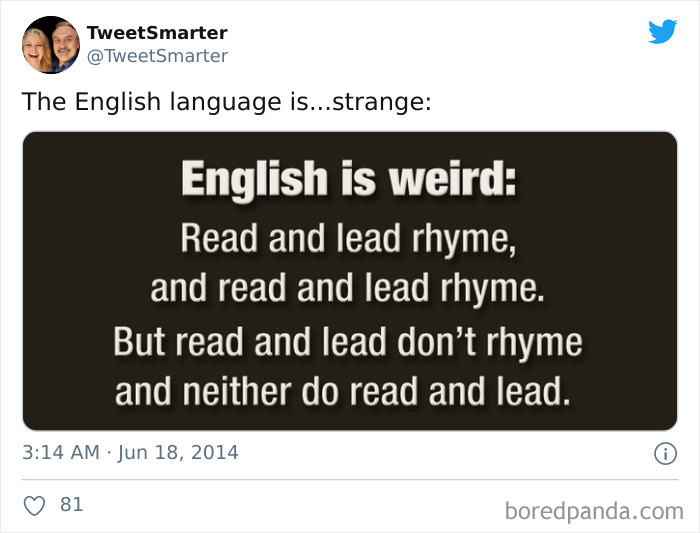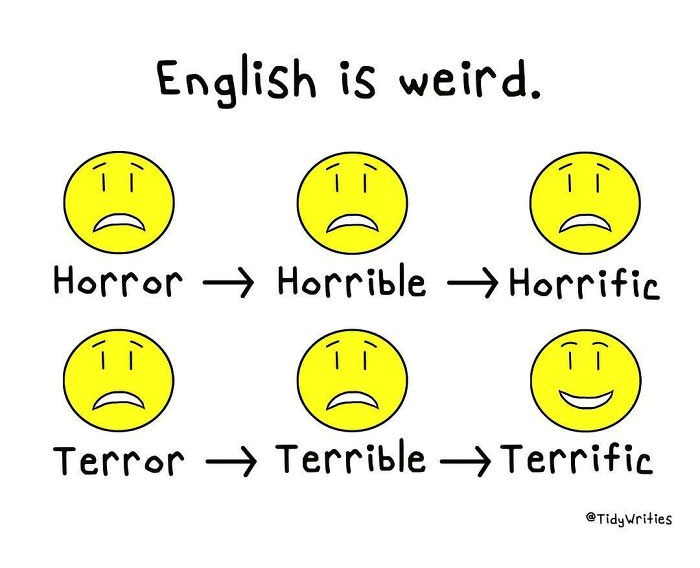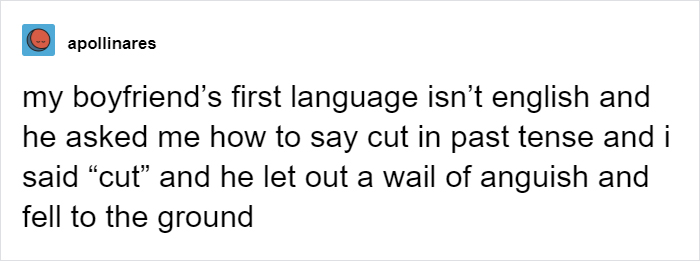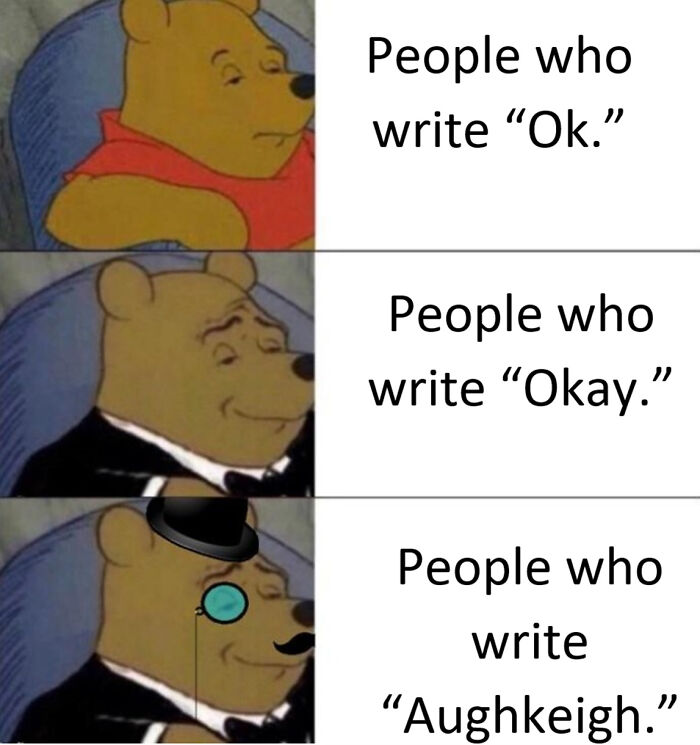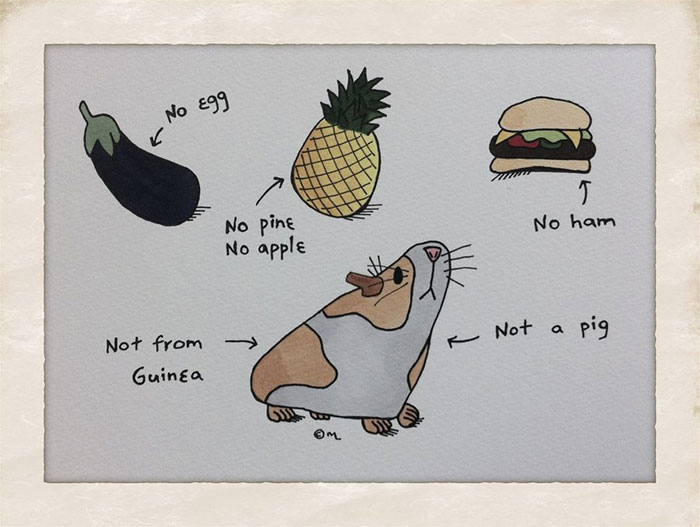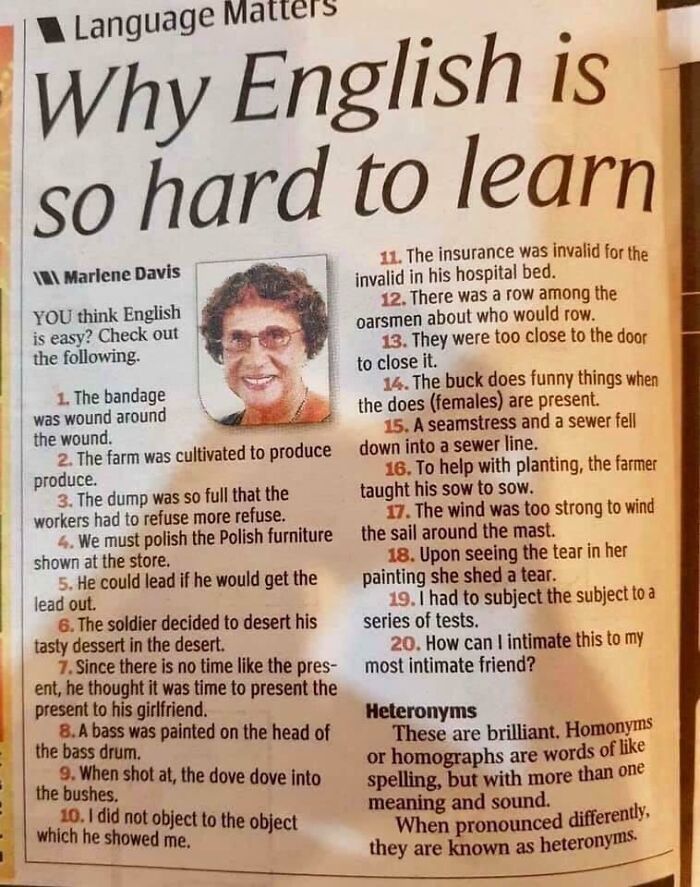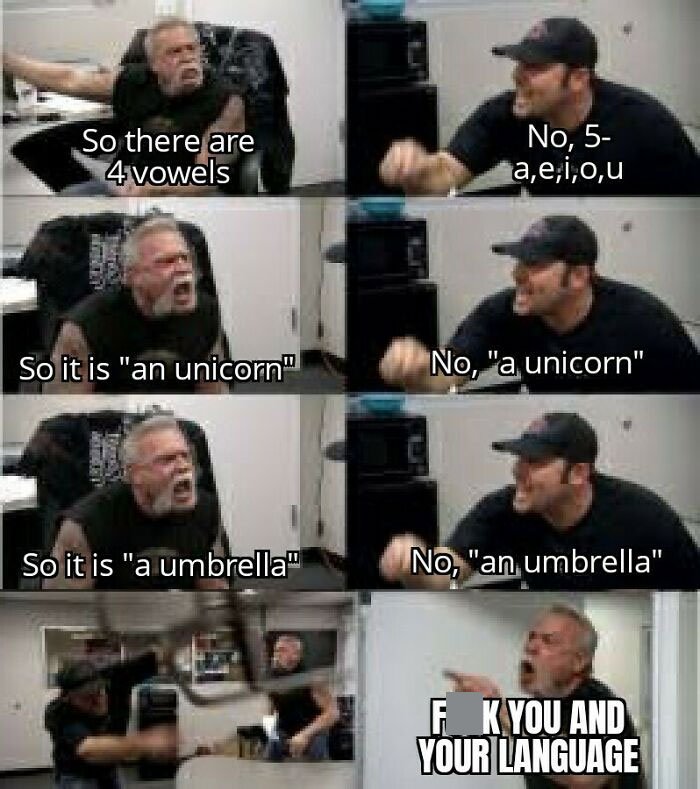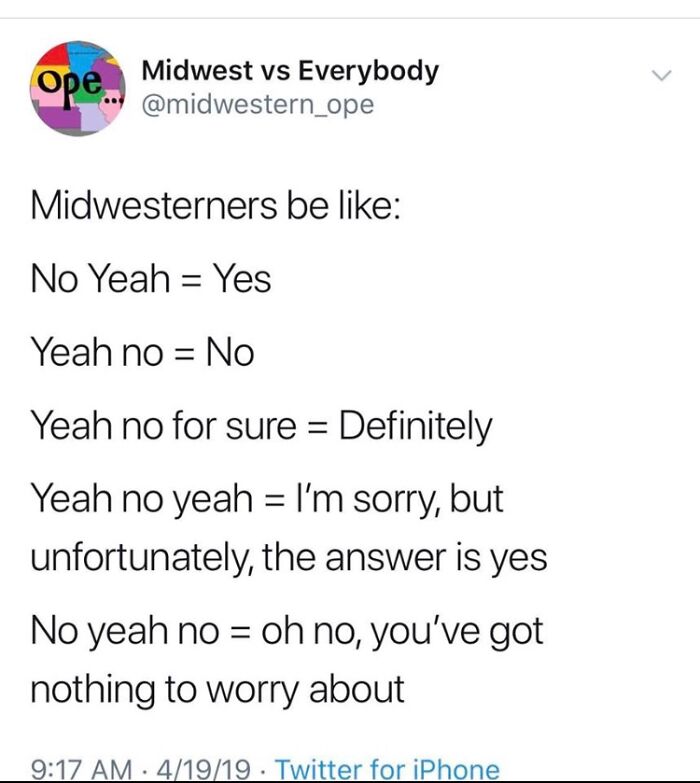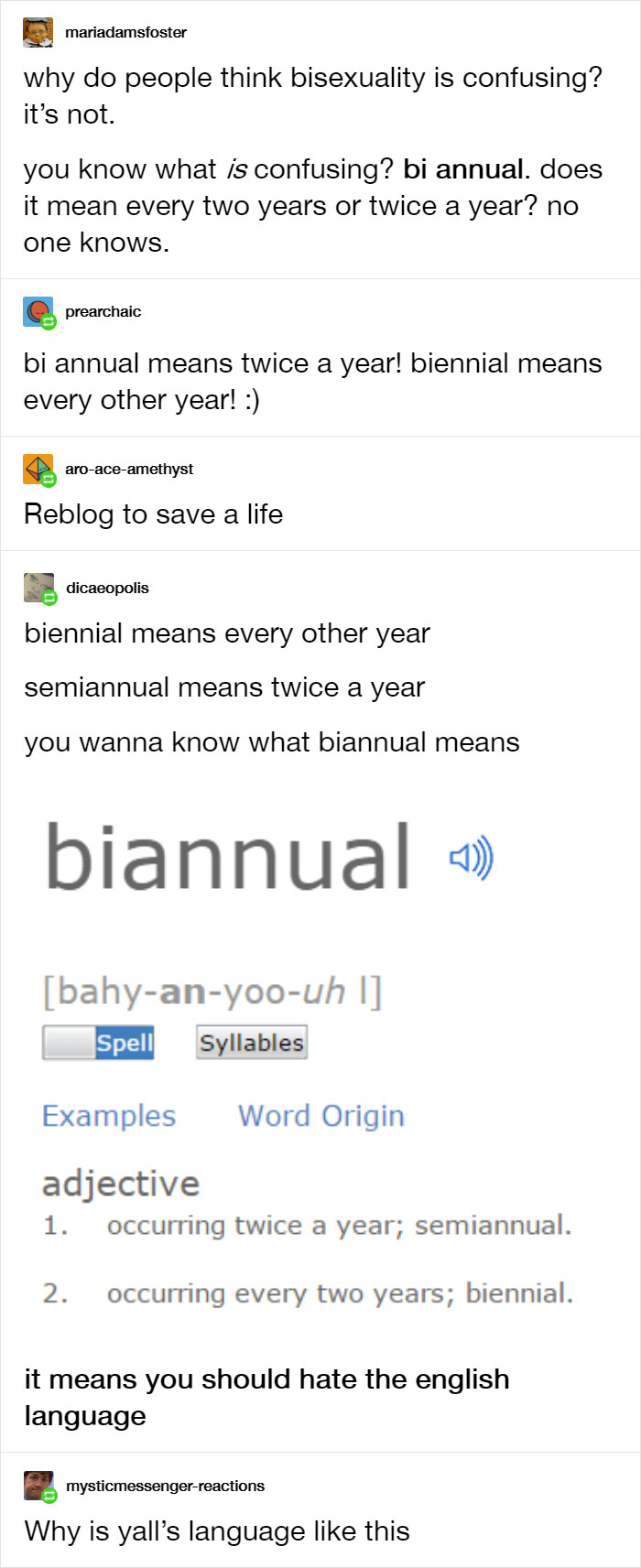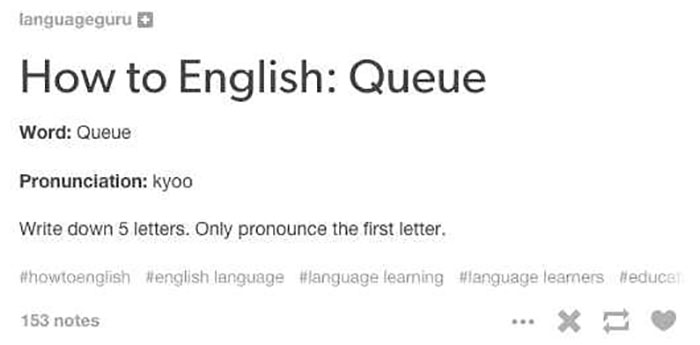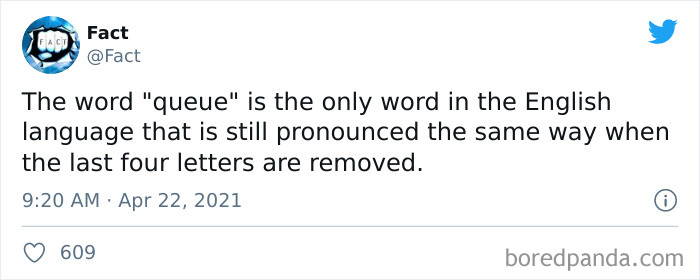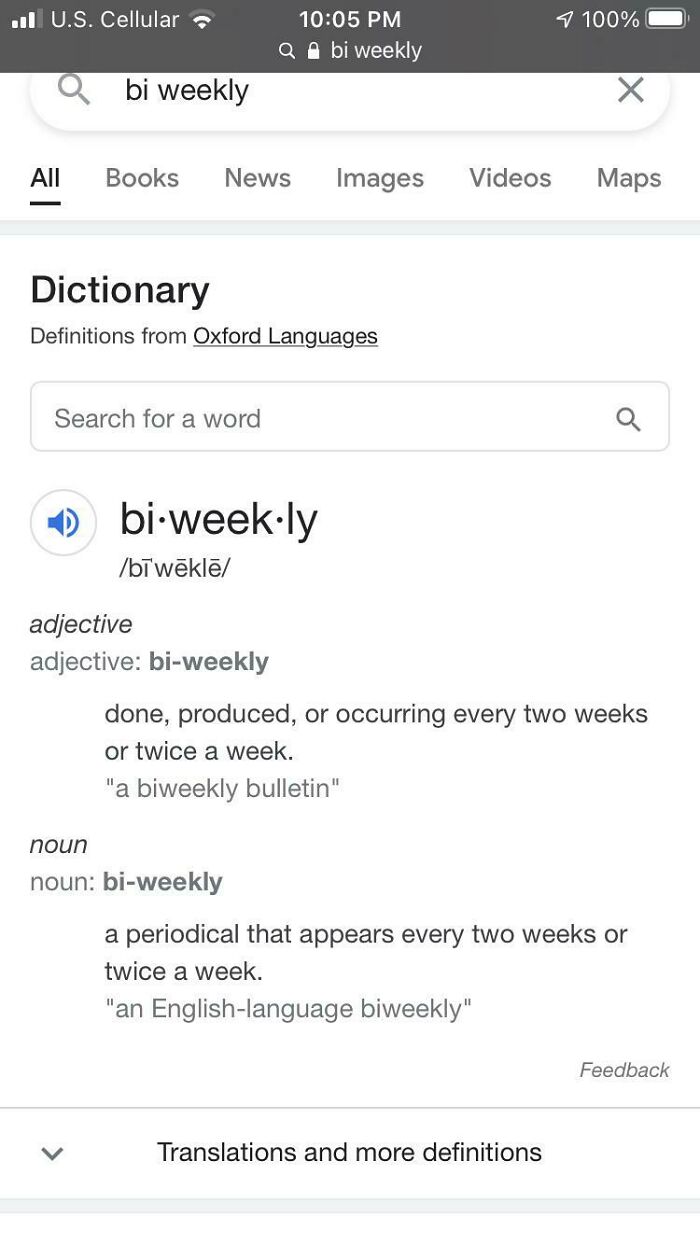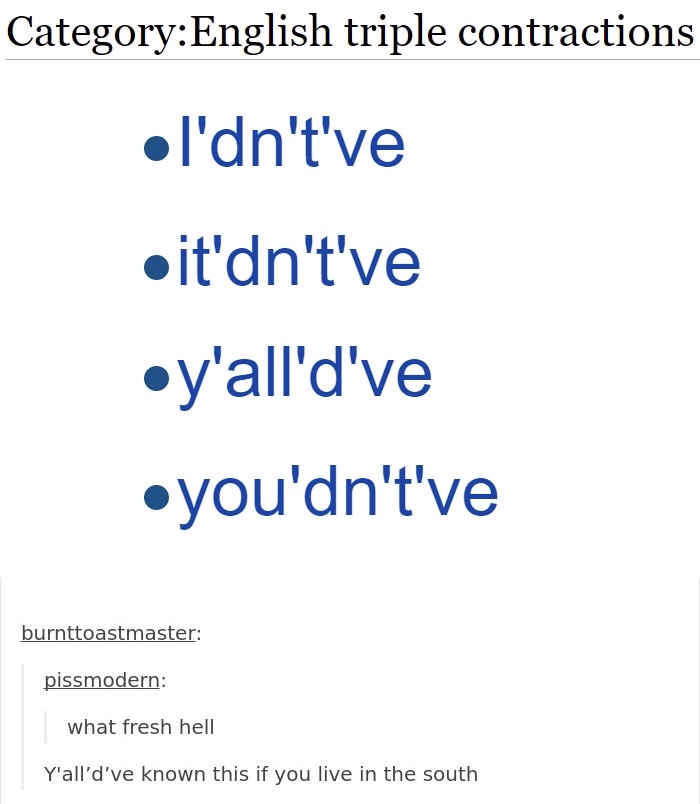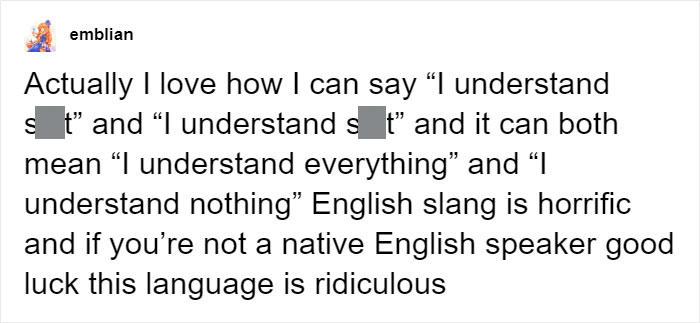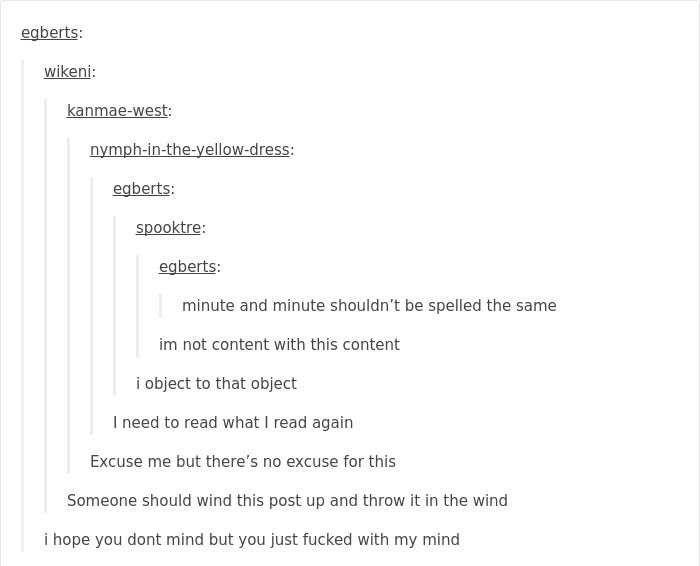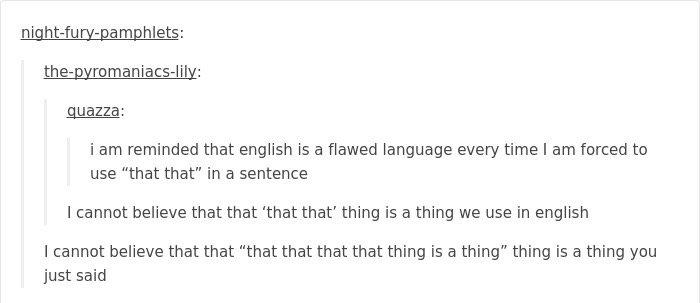I absolutely adore the English language with all of its ups and downs, twists and turns, astounding hyperboles and alliterative inclinations. And let’s not forget the puns! However, it’s no secret that the language can be a tad… discombobulating for new students, anyone who’s learning English as a second language, and native speakers alike.
To show you what we mean, the literature-loving philology fans here at Bored Panda have collected the most hilarious and honest examples of people showing how frustrating the English language can be for them. Have a read below, upvote your fave posts, and remember to share your own experience with the exciting journey that is learning English.
Listen beautiful relax classics on our Youtube channel.
#1
#2
#3
Image credits: kiwikoalacat7
During an earlier interview, I spoke to Dr. Lisa McLendon about the difficulties that foreign students face when learning English, as well as how to keep our linguistic skills sharp. Dr. McLendon is the News and Information Track Chair at the University of Kansas School of Journalism and Coordinator at the Bremner Editing Center.
According to Dr. McLendon, a lot of the difficulties that foreign students face depend on the languages that they already know. Those who know languages similar to English in their structure and logic will have an easier time.
#4
Image credits: _charlmorgan
#5
#6
Image credits: emmattack
“For students whose native language lacks articles (a, an, the), articles are by far the hardest category of words to master. Verb tense/aspect is also really hard—the difference between ‘I read,’ ‘I am reading,’ and ‘I do read’ is nonexistent in many other languages,” the language expert explained.
#7
#8
#9
Just memorizing common words doesn’t help overcome these linguistic barriers. What needs to happen is for the student in question to completely shift their mindset. That and practice things until the quirks of the English language become second nature to them.
“These don’t pose any difficulties for native speakers who use them correctly without even thinking about it,” Dr. McLendon said about the linguistic nuances.
#10
Listen beautiful relax classics on our Youtube channel.
Image credits: qikipedia
#11
#12
It’s not just foreign speakers that have issues with the language, though. The professor highlighted that in her experience as an editor and an educator, she found that native speakers have trouble with past passive participles in speech (e.g. saying ‘I had went’).
What’s more, when it comes to writing, native speakers have issues with punctuation, homophones (e.g. peek vs. peak), and misplaced modifiers.
#13
Image credits: GabbieHanna
#14
#15
Dr. McLendon suggested that nobody rest on their laurels. Learning’s a lifelong mission and improving our English skills is no exception. And if we want to keep our minds well-honed and our quills sharp, then we’re going to have to get some good habits under our belts.
#16
Image credits: illogicalphallusies
#17
#18
Image credits: TweetSmarter
“Read! Read widely and frequently. Read magazines, newspapers, novels, even cereal boxes,” the language expert told Bored Panda. “But be careful when scrolling through social media, which although it can give you a good idea of current slang and shorthand, it’s often not a great model of clarity, accuracy, or good grammar.”
#19
#20
#21
When it comes to pronunciation, though, Dr. McLendon pointed out that both native speakers and foreign students alike have problems with it. Especially when we’re talking about less common words like ‘epitome.’
“I’ve known lots of people who learned words by reading, not by hearing, and so had no idea how they were pronounced. But for people learning English, pronunciation can be a real nightmare,” the professor said.
#22
#23
#24
“We have words that are spelled similarly but pronounced differently (bomb/comb/tomb) and words that are spelled differently but sound the same (peek/peak/pique). Plus, English has a lot of words that have silent letters, which can be confusing.”
#25
#26
#27
Image credits: Cheesey_Whiskers
Dr. McLendon was candid that English is much more chaotic than other languages in terms of how spelling reflects pronunciation and vice versa. “English is a Gallic overlay on a Germanic base, plus it has borrowed liberally from languages all around the world throughout its development,” she told Bored Panda.
#28
#29
#30
“When a word comes into English, where it comes from, and when a spelling gets standardized all affect how a word is written in relation to how it sounds. Other languages may not be exactly ‘spelled like it sounds’ but have set patterns of how pronunciation does not correspond with spelling.”
#31
#32
#33
#34
#35
#36
#37
Image credits: bostjankolenc
#38
#39
#40
Image credits: Sea_Break_8070
#41
#42
Image credits: HedgeHogg1
#43
#44
#45
Image credits: shinigami0099uyyuo
#46
#47
#48
#49
Image credits: Mr_Squidward_T
#50
#51
#52
#53
Image credits: silkyhummus
#54
#55
#56
#57
#58
#59
#60
#61
#62
#63
#64
#65
#66
Image credits: Fact
#67
Image credits: SirBlobfis
#68
#69
#70
#71
#72
Image credits: popupro21
#73
#74
#75
#76
#77
#78
#79
#80
#81
#82
Source: boredpanda.com





